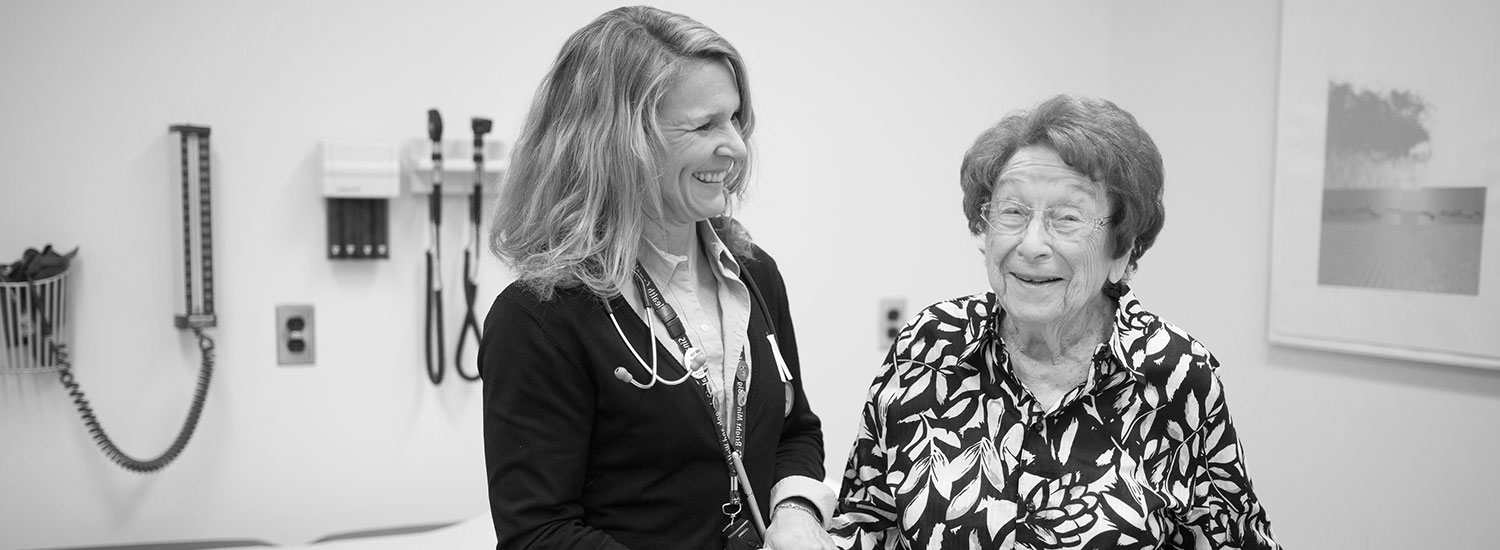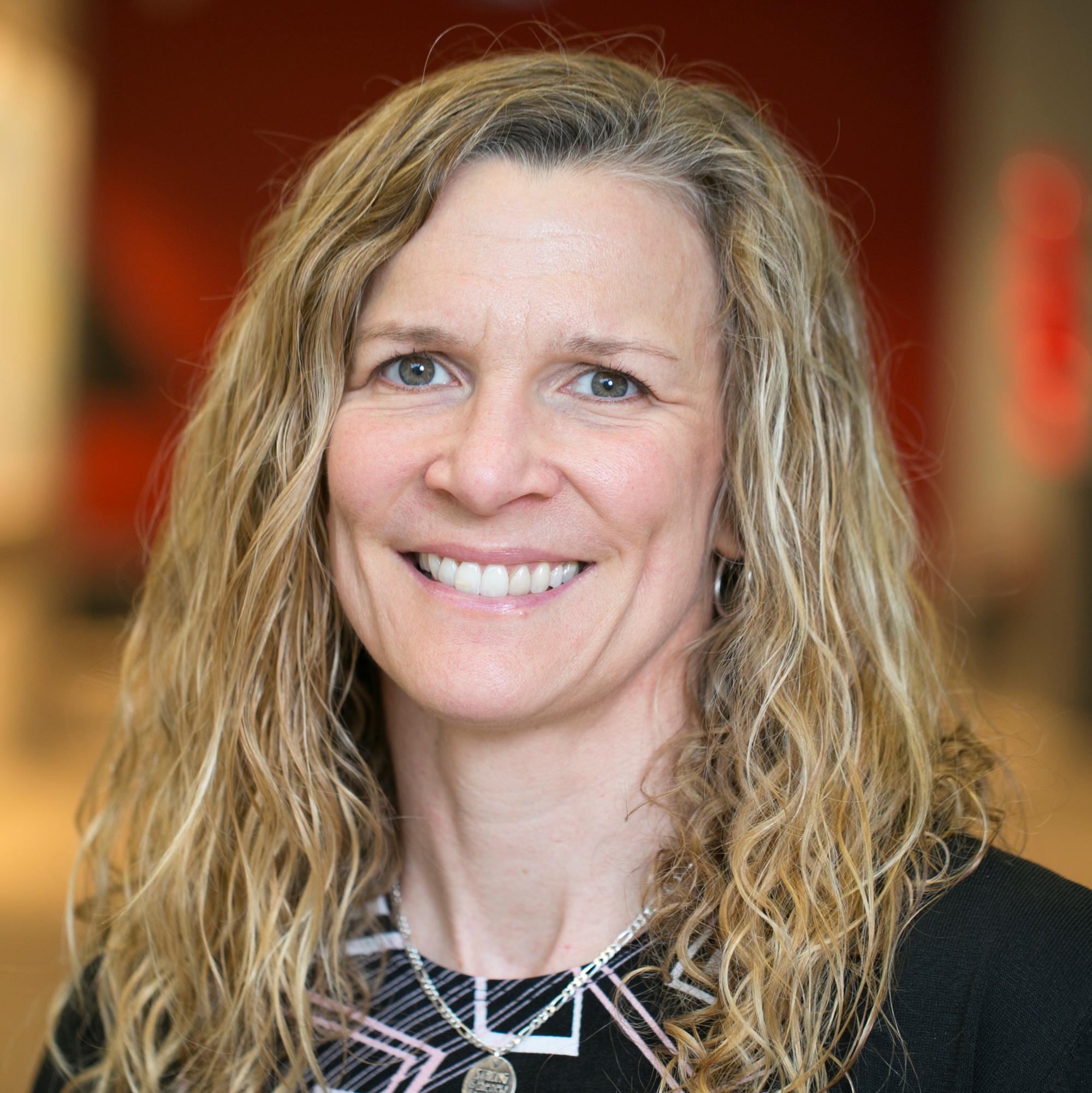July 24 is International Self Care Day, a day to raise awareness about self-care and the important role it plays in leading a healthy lifestyle. But what is self-care and how can older adults, caregivers and healthcare workers incorporate self-care practices in to their daily life? We talked to Leanne Ginty, Director, Nursing Education and Academic Affairs at Sinai Health, about the importance of self-care and how she practices self-care in her own life.
Sinai Geriatrics (SG): What is your definition of self-care?
Leanne Ginty: Self-care for me is doing what I need to do to maintain a level of physical, mental, psychological and emotional well-being so that I’m able to do my job supporting nurses and team members to safely provide patient care. I believe self-care involves planning, organization and commitment because it is often the first thing that gets dropped off when you get busy.
SG: What are some misconceptions people have about self-care?
LG: Some people think self-care is selfish – that devoting time to themselves instead of someone else is something to feel guilty about. Another misconception is that you have to do something big like buying a gym membership or running a marathon. You can take care of yourself in small ways that can have a profound benefit. Sometimes taking care of yourself can be as simple as pausing for five minutes in your day, making sure you stay hydrated or getting up to stretch your legs.
SG: July 24 is International Self-Care Day—an opportunity to raise awareness about self-care and the important role it plays in leading a healthy lifestyle. How do you believe self-care can lead to/contribute to a healthy lifestyle?
LG: I think staying active is extremely important for both mental and physical health. For me, I find that doing things earlier in the day, like making the bed in the morning, makes me feel like I’ve accomplished something. Whether it’s going for a 20-30 minute run or bike ride in the morning or taking the dog out for a walk, I know I’ve got something done on my to do list. If I get in that little bit of activity at the start of the day I feel like okay I’ve got the tools and resources and energy to face the day. It’s important to do enough to get your heart rate going and feel invigorated. It can definitely be hard to stay motivated! If I am tight for time in the morning, I will do some stretching before getting out of bed and then some body weights (push-ups, sit-ups, gentle squats) before jumping into the shower. Taking the dog for a walk at the end of the day as a wind down and bringing my kids along for a walk ‘n talk can be both fun and restorative. It is important to be kind to yourself and not set too high expectations on yourself. Keep it simple and realistic.
SG: COVID-19 has caused stress and anxiety for everyone, particularly healthcare workers and caregivers. What are some ways people on the front lines of the pandemic can practice self-care and what are some ways you’ve seen colleagues and friends practice self-care?
LG: The pandemic has definitely caused a lot of change in the hospital that has resulted in more work for us but now that we’ve settled in to a routine, we can take some time to take care of ourselves. That includes making sure people are taking their breaks and getting fresh air, and trying to plan for healthy meals that are quick and easy.
SG: Older adults have been impacted by COVID-19, having to be isolated from loved ones and friends and may be fearful of the illness. What are some ways older adults, that are both living at home and in long-term care settings, practice self-care during this time?
LG: I think it’s important to maintain mobility. Even within your own home. My father lives in my home and I’ve been trying to encourage him to get up and walk around the house throughout the day and, when possible, get him outside for some short walks. It doesn’t have to be huge, some small frequent periods of activity throughout the day, such as bed exercises or balancing between two pieces of furniture to work on balance, can be beneficial.
SG: Why is it important for older adults to practice self-care?
LG: Self-care allows older adults to participate in maintaining their independence and have some accountability in their own well-being. Mobility is so important for older adults. It can be challenging for caregivers to get extra support during this time but it doesn’t take much to ask an older adult, “Have you walked around the house lately?” Give them a little nudge.
I think the other challenge for older adults around wellness recently has been social isolation. I swim at a local pool and there’s a whole network of older adults that would frequent that pool every single morning. It isn’t just the physical activity, it is the social aspect that is important because it gives them a chance to catch up with each other. They also look out for each other. If they haven’t seen someone for a while, they ask around and make sure everyone is okay. So one way we can help older adults right now is by encouraging them and supporting them to stay connected with each other – even if just virtually using the phone or other technology. If they are not super tech-savvy – perhaps offer to help them get set up and comfortable with connecting with others to stay connected.
SG: What physical and mental health resources are available/you can recommend for people looking to practice self-care?
LG: Here are some resources I think are very helpful:
Overall benefits of physical activity – Heart and Stroke
Participation website – staying connected as you age with physical activity
Stay strong on your feet (falls prevention)
Also, check out Sinai Geriatrics resources: Living Longer, Living Well: Your Guide to Healthy Ageing, How to Recognize and Manage Anxiety and Managing Caregiver Stress.
This interview has been edited and condensed for clarity.
Date modified: 2020-07-20


